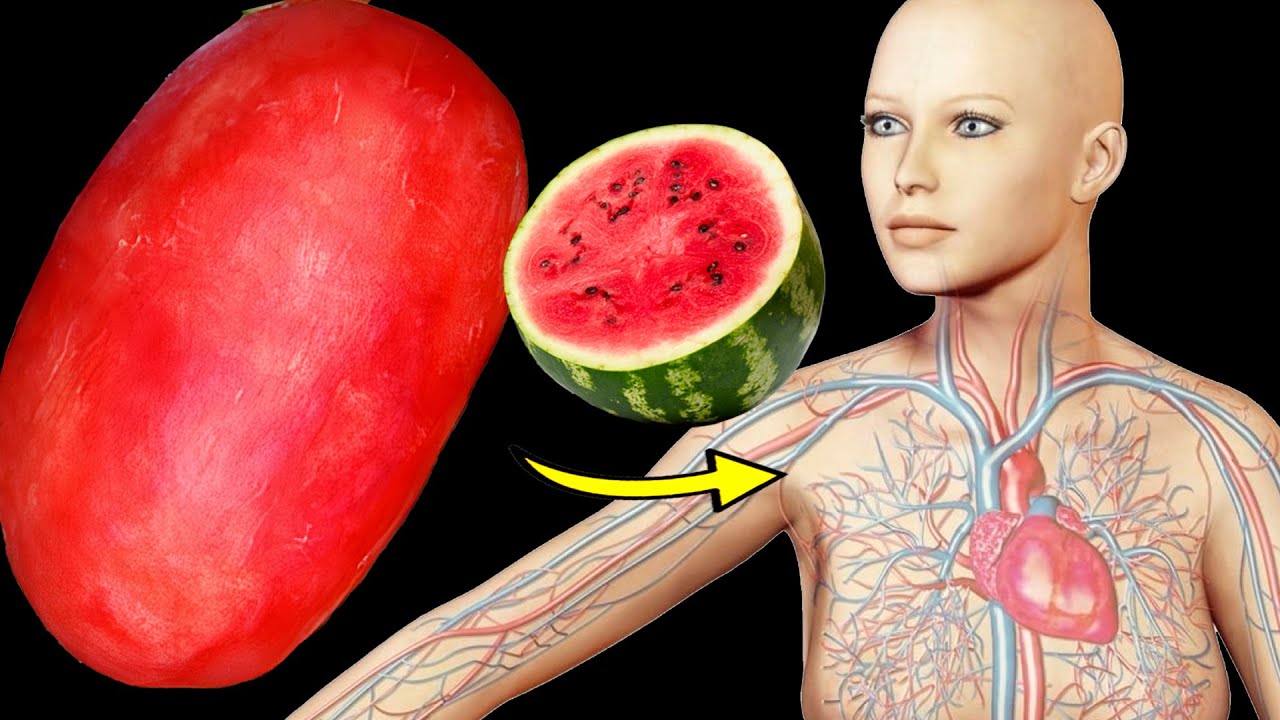
Eating watermelon every day can have several noticeable effects on your body due to its rich nutritional profile, which includes vitamins A, B6, and C, as well as plenty of lycopene, antioxidants, and amino acids. Here’s a closer look at what could happen if you make watermelon a daily treat:
1. Hydration Boost
Watermelon is about 92% water, which makes it excellent for staying hydrated. Eating it regularly can help keep your body well-hydrated, supporting overall health and helping to maintain moisture in the skin and cells.
2. Nutrient Intake Increase
You’ll benefit from a good dose of vitamins A and C, which are important for skin health, immune function, and overall cellular health. Vitamin B6 in watermelon helps the body process protein and is involved in brain health.
3. Improved Heart Health
The lycopene in watermelon is linked to heart health benefits, including reduced blood pressure and lower cholesterol. The amino acid citrulline in watermelon can help improve circulation and reduce blood pressure by dilating blood vessels.
4. Digestive Health
Because it’s rich in water and also contains fiber, watermelon supports the digestive system, helping to regulate bowel movements and hydrate the gastrointestinal tract.
5. Antioxidant Effects
Watermelon is loaded with antioxidants, including lycopene and vitamin C, which help combat oxidative stress and may reduce the risk of chronic diseases like heart disease and cancer.
6. Anti-Inflammatory Benefits
Lycopene and other compounds in watermelon have anti-inflammatory properties, which can help reduce inflammation and the associated risk of various health conditions.
7. Weight Management
Low in calories and high in water content, watermelon can help you feel full without consuming a lot of calories, which is beneficial if you’re looking to manage your weight.
8. Muscle Soreness Reduction
Citrulline, an amino acid in watermelon, may help reduce muscle soreness, particularly after exercise. It’s thought to improve blood flow and reduce the accumulation of lactic acid.
9. Potential Sugar Level Impact
Although watermelon is a healthy fruit, it’s relatively high in natural sugars. Regular consumption could affect blood sugar levels, especially for those with diabetes or those sensitive to changes in blood sugar. It’s essential to consider this and balance intake with other low-sugar foods.
10. Kidney Health Considerations
The high water and potassium content in watermelon is beneficial for the kidneys by helping them flush out toxins more efficiently. However, if you have kidney problems, consuming too much potassium can be harmful, so moderation is key.
Adding watermelon to your diet can provide numerous health benefits, especially during hot weather when staying hydrated is crucial. However, as with any food, it’s important to consume it as part of a balanced diet to maximize its health benefits while managing any potential downsides.





